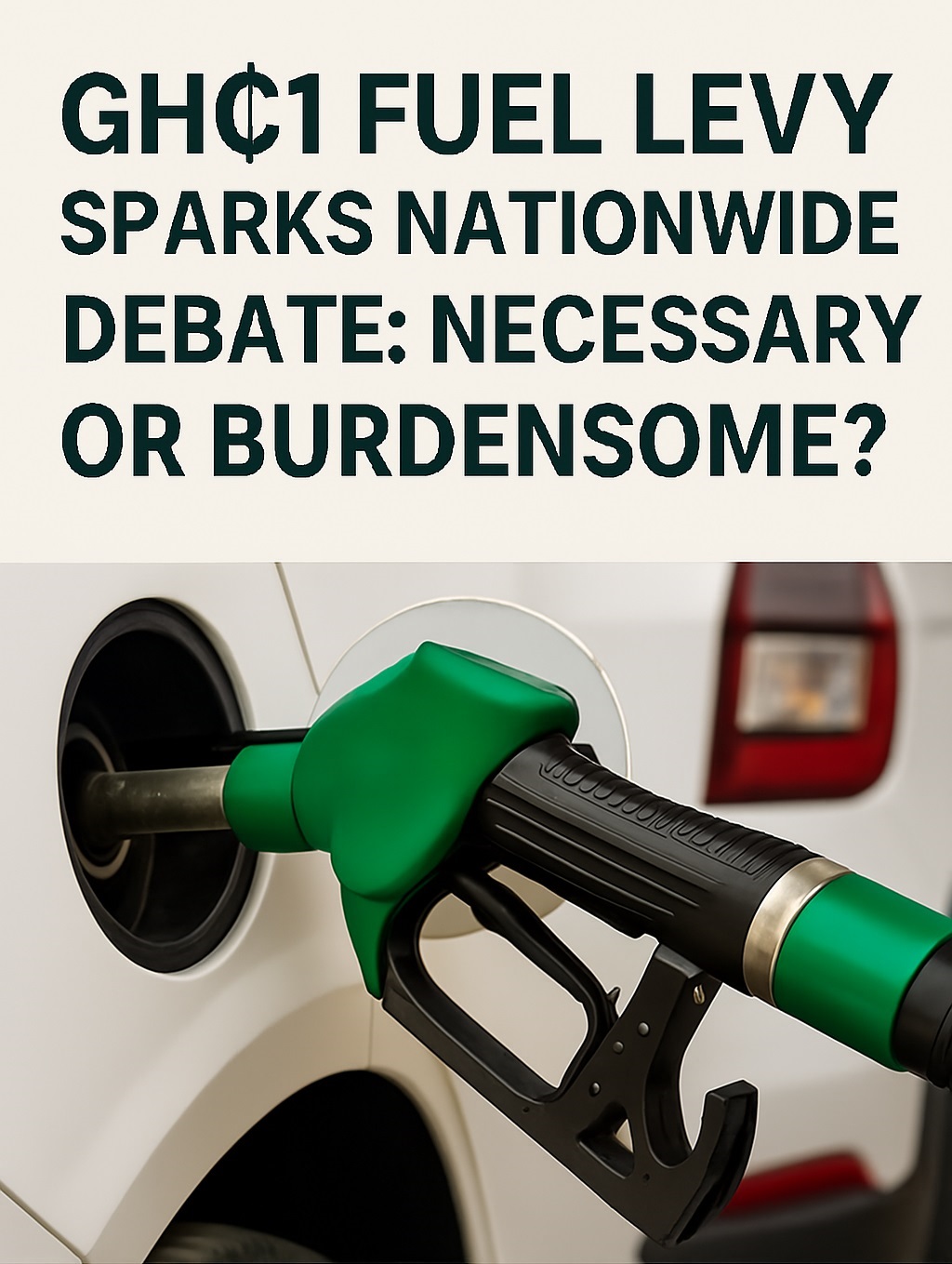GH¢1 Fuel Levy Sparks Nationwide Debate: Necessary or Burdensome?

The Ghanaian government’s decision to impose a GH¢1 fuel levy on petroleum products has ignited a heated national debate, with stakeholders divided over its necessity and potential economic impact. The levy, introduced under the Energy Sector Levies (Amendment) Act, 2025, aims to address Ghana’s mounting energy sector debt, which currently stands at $3.1 billion. However, critics argue that the additional charge will exacerbate financial strain on consumers and businesses.
Background and Rationale
Ghana’s energy sector has long struggled with legacy debt, stemming from subsidized electricity costs, delayed government payments, and take-or-pay contracts with Independent Power Producers (IPPs). These financial burdens have contributed to persistent power outages (dumsor) and hindered efforts to stabilize the sector.
The Energy Sector Levies Act (ESLA) was first introduced in 2015, followed by the establishment of ESLA Plc in 2017, both aimed at restructuring and clearing sector debts. The latest amendment, passed by Parliament on June 3, 2025, under a certificate of urgency, introduces the GH¢1 levy to generate GH¢5.7 billion annually for debt repayment and energy sector stabilization.
Government’s Justification and Implementation Plans
The Ghana Revenue Authority (GRA) has confirmed that the GH¢1 fuel levy will officially take effect on June 16, 2025, following a postponement from the initial June 9 start date. The levy is expected to raise GH¢5.7 billion annually to settle debts owed to IPPs and fuel suppliers, ensuring stable electricity supply.
President John Dramani Mahama defended the levy, acknowledging its difficulty but emphasizing its necessity in resolving Ghana’s crippling energy sector debts. Finance Minister Dr. Cassiel Ato Forson assured citizens that the recent appreciation of the Ghana cedi would cushion the impact, preventing immediate fuel price hikes.
Public and Industry Reactions
The levy has sparked mixed reactions among stakeholders. The Chamber of Oil Marketing Companies (COMAC) initially opposed the levy, warning that it could lead to higher transport fares and inflationary pressures. Meanwhile, Professor Godfred Bokpin, an economist at the University of Ghana Business School, urged the government to ensure the levy is temporary, warning that a lack of consultation has eroded public confidence.
The International Perspective for Policy and Governance (IPPG) criticized the limited stakeholder engagement, arguing that the levy could disincentivize LPG adoption and reverse progress on clean energy initiatives. Additionally, NPP MP Isaac Boamah-Nyarko cautioned that the levy could destabilize Ghana’s economic recovery, questioning the lack of transparency in its rollout.
Stakeholder Concerns and Adjustments
Following stakeholder consultations, the GRA postponed the implementation to June 16 to allow industry players more time to prepare. The revised levy rates will affect various petroleum products:
-
Petrol (Super): GH¢1.95 per litre (up from GH¢0.95).
-
Diesel and Marine Gas Oil (Foreign): GH¢1.93 per litre (up from GH¢0.93).
-
Marine Gas Oil (Local): GH¢0.23 per litre (up from GH¢0.03).
-
Heavy Fuel Oil (Residual Fuel Oil – RFO): GH¢0.24 per litre (up from GH¢0.04).
-
Partially Refined Oil (Naphtha): GH¢1.95 per litre (doubled).
-
Liquefied Petroleum Gas (LPG): Remains unchanged at GH¢0.73 per kilogram.
Economic Implications
Economists warn that the levy could increase inflation, affecting transportation costs, food prices, and business operations. However, proponents argue that without it, Ghana risks another energy crisis, which could be far more damaging to the economy.
As Ghana prepares for the June 16 implementation, the debate over the GH¢1 fuel levy continues to intensify. While the government insists it is a necessary measure to stabilize the energy sector, critics fear it will burden consumers and slow economic recovery. The coming months will reveal whether the levy achieves its intended purpose or fuels further discontent.



0 Comments
No comments yet, be the first to comment